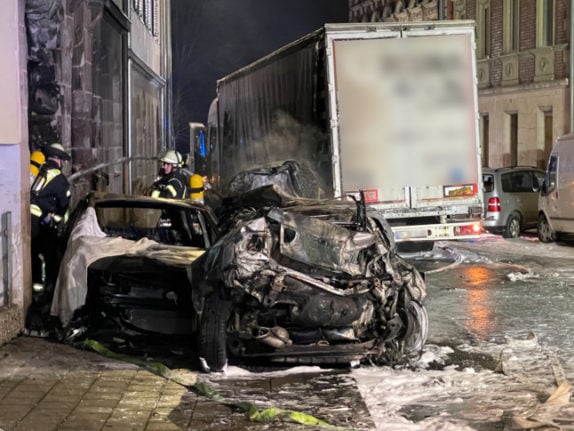The 50-year-old driver “missed a red light and hit a passenger car at a crossing”, leaving the female driver with slight injuries, police in the city of Fürth said in a statement on Wednesday.
Without stopping after the first accident, the lorry driver “rammed several parked cars” pushing them ahead of him and, in some cases, against the walls of neighbouring houses.
After the collisions, the lorry, a number of cars and the facade of a house caught fire. Local firefighters intervened to put the blaze out and evacuate the residents of the house.
The truck driver himself and a passer-by suffered light injuries.
The damage caused by the incident was liable to be “immense”, the police force in Fürth, to the west of Nuremberg in Bavaria, said.
The driver was arrested on site and was “clearly very drunk”, police said.
The local prosecutor’s officers ordered the detention of the lorry driver, who does not have a fixed residence in Germany.




 Please whitelist us to continue reading.
Please whitelist us to continue reading.
The local prosecutor’s officers ordered the detention of the lorry driver, who does not have a fixed residence in Germany.
This will come as a surprise to zero people.